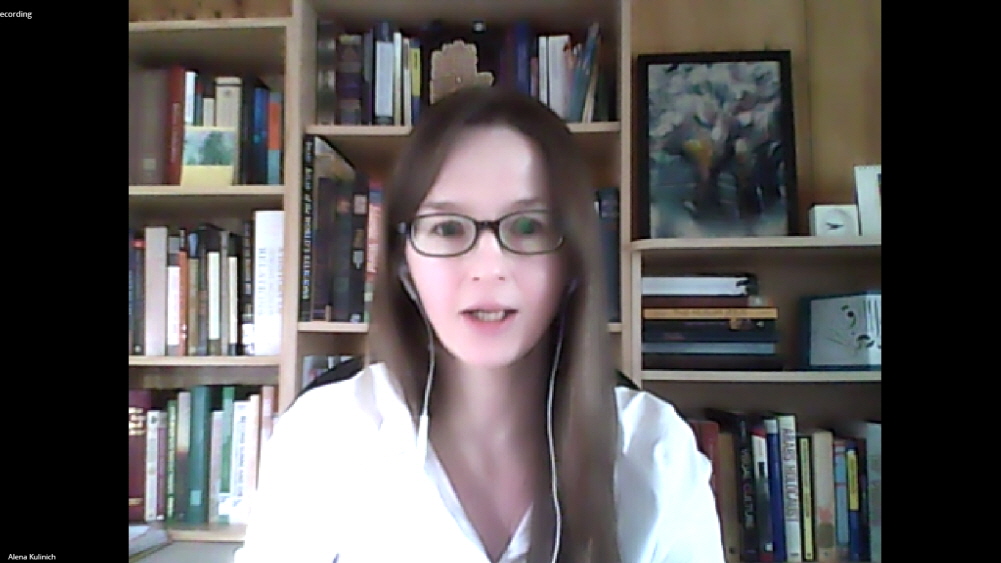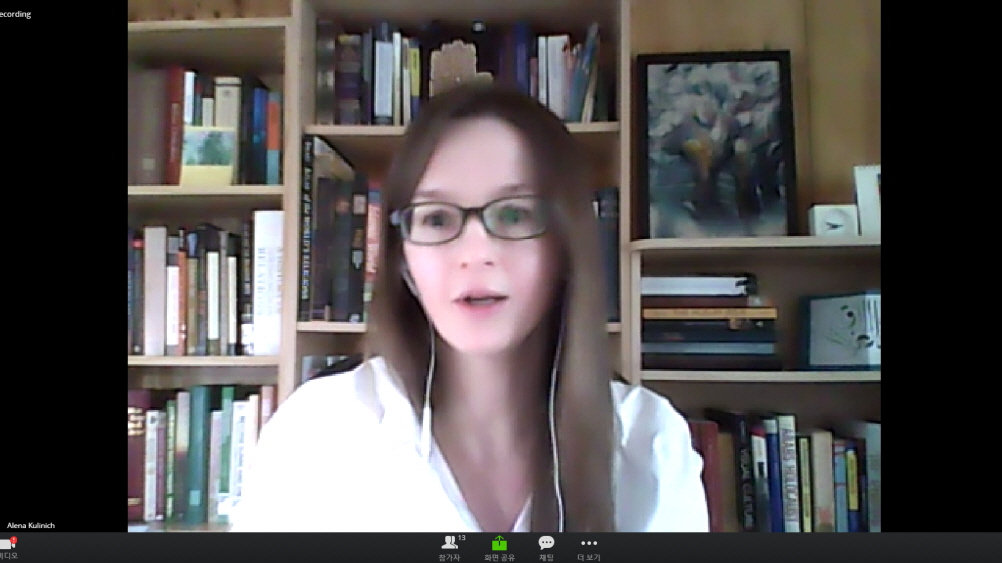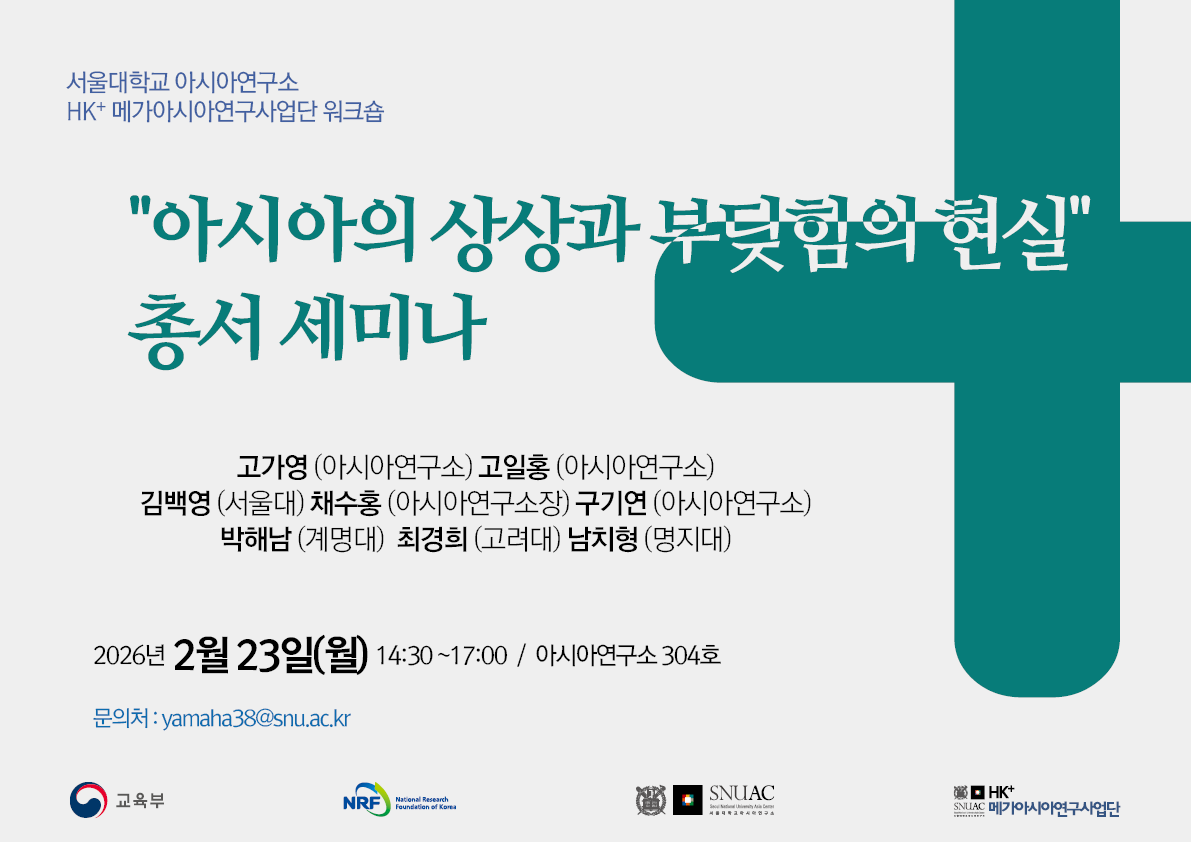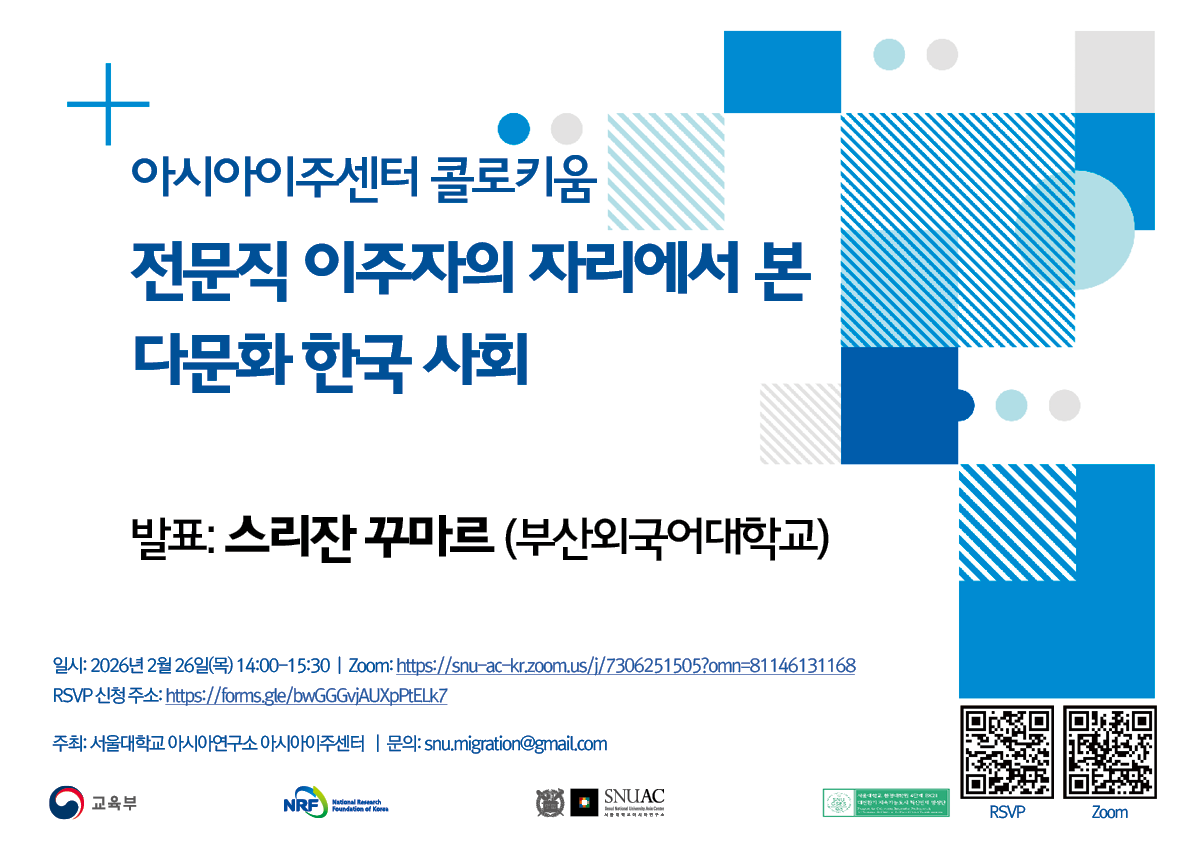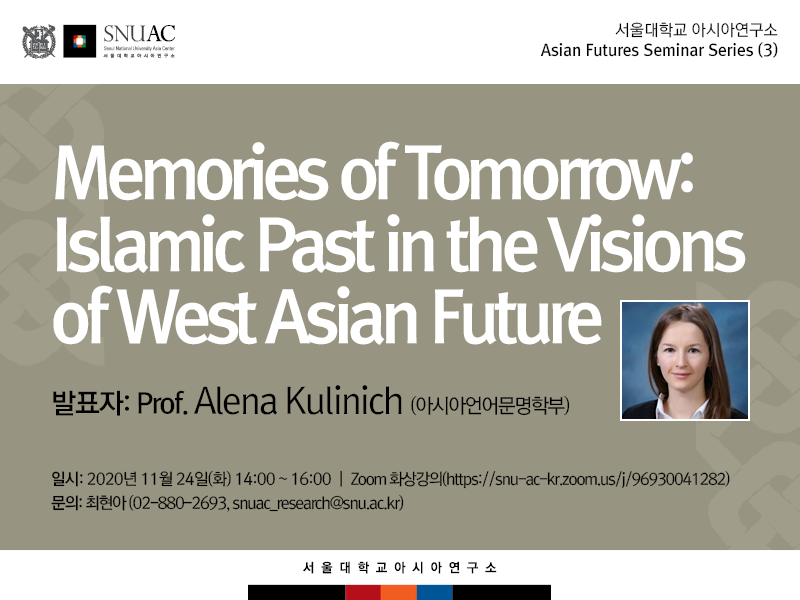
ALENA KULINICH
March 2020 –
present
Associate Professor of West Asian Studies, Department of Asian Languages and Civilizations, Seoul National University
2013 – 2020 Assistant Professor of West Asian Studies, Department of Asian Languages and Civilisations, Seoul National University
2011 – 2013 Research Assistant (The Qur’ān Project), The Institute of Ismaili Studies, London
2010 – 2013 Senior Teaching Fellow, Department of History and Department of the Study of Religions, School of Oriental and African Studies (SOAS), University of London
Abstract
Against the background of colonial and postcolonial conditions, the ongoing search for authenticity (aṣliyya) and a renewed interest in cultural heritage (turāth), all major ideologies in the 20th and 21st centuries’ West Asia have drawn on Islamic past to legitimise the futures they envisioned. This paper focuses on the uses of Mu‘tazilism, a rationalist tradition of Islamic thought that flourished during the ‘Abbasid Caliphate (750–1258), as a symbol, model and a source of inspiration for the visions of West Asian future. Modern endeavours to rediscover and revive this tradition, often referred to as Neo-Mu‘tazilism, span across geographical, cultural and political divides. Exploring its appeal in these diverse contexts, the paper highlights the changing perceptions of this tradition. It discusses various interpretations of Mu‘tazilism as a symbol of progress, freedom, and a better future, inspired by Mu‘tazilite rationalism, their doctrine of free will, and the idea of the ‘golden age’ of Islamic civilisation under the ‘Abbasids. The discovery and publication of Mu‘tazilite sources from the 1960s onwards have enabled a deeper exploration of Mu‘tazilite thought. Several Muslim intellectuals have engaged creatively with its various aspects to envision the revival and reform of Islam. As a rationalist tradition, today Mu‘tazilism remains the subject of great expectations and a potential source of inspiration for the new visions of tomorrow in West Asia and beyond.
Photo
Review
지난 두 번째 특강의 이슬람 과거 및 서아시아 소개에 이어 세 번째 Asian Futures Seminar Series에서는 아시아언어문명학부의 엘레나 컬리니치 교수가 <미래의 추억: 서아시아 미래 비전에 나타난 이슬람의 과거>라는 주제로 발표했다.
엘레나 교수는 8세기 중엽부터 10세기 중엽까지 번영한 이슬람 신학의 선구적 일파인 무타질라(Mu ‘tazila)파를 소개했다. 무타질라 학파는 바스라와 바그다드에서 번성한 이슬람의 신학파로, 8세기 시작되어 9세기 무렵 압바스조 치하에서 칼리프 알마으문 치하까지 절정기를 맞았다.
엘레나 교수는 현대에 재발견되고 있는 무타질라파의 이유는, 그리스적 유산인 합리성과 이성을 중시하여 신학 학설 수립의 논리적인 체계를 세웠기 때문이라고 설명하였다. 강연 후 디자인학부의 애니 페드렛 교수는 무타질라파의 관점에서 이성주의는 무엇인지를 논의하였고, 아시아연구소 구기연 HK연구교수는 무타질라파와 시아파의 다른 점이 무엇인지 등 다양한 질문을 이끌며 열띤 토론이 진행되었다.
